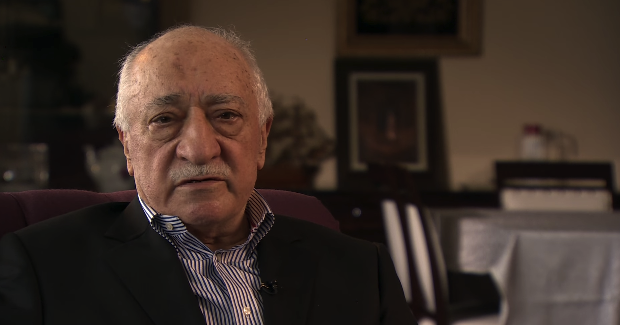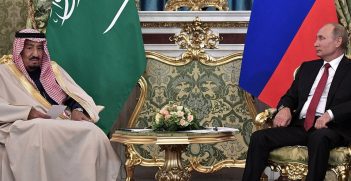Turkey: The Gulen Dilemma

The life of Fethullah Gulen, the charismatic Turkish spiritual Islamic cleric in exile in the United States, is considerably more troubled following the election of Donald Trump and his choice of Michael Flynn for national security advisor. If Gulen flees the US under threat of extradition—and Australia is one possible destination—his dilemma may become an international conundrum.
New administration, new perspective
In an article published on the day of the US election, Trump’s chosen national security advisor, retired Lt. General Michael T. Flynn, wrote that Gulen could be categorised as a radical Islamic jihadist bent on destroying the Turkish government. Flynn pleads for support for Erdogan and his government while putting Gulen in the same boat as radical Islamist theorists such as Sayid Qutb and Al-Banna, the founder of the Muslim Brotherhood in Egypt. Flynn claims that the portrayal of Gulen as a peaceful Sufi cleric dedicated to multiconfessionalism is a false image designed to lull the American public into accepting the presence of Gulenist schools on US territory and endorsing their practices. He goes on to liken Gulen to Iran’s former religious and political leader Imam Khomeini.
These developments are indeed ominous for Gulen and his movement. Gulen and his organisation Hizmet (‘the Service’), had been pursued by the Turkish state for a variety of alleged crimes even before the failed coup d’état in the July this year. Gulen has denied any responsibility for the coup d’état and instead raised the possibility that Turkish President Recep Tayyip Erdogan might have engineered the coup himself, ostensibly to suppress the movement along with any other opposition he may have found to be irksome.
The Turkish government has since demanded the extradition of Gulen as a quid pro quo for good relations with the US. The current American position on Gulen’s extradition is a purely legalistic one backed by the Obama administration. Any Turkish demand for his extradition will have to analysed within the confines of the law and determined in light of the rights and obligations of all the parties. In response, Erdogan claims he has sent documented proof of Gulen’s hand in the coup but that the present American administration has not given it serious consideration. The current American position is based on studying and evaluating the voluminous documents presented as ‘proof’ by Ankara. Sifting through them takes time.
However, the election of Trump could change that position dramatically. The nomination of Flynn is a clear warning sign to Gulen that the US position is tipping in Ankara’s favour. Flynn has ties to the Turkish government through consulting contracts obtained from Ankara while retired. Media reports have him meeting Turkish government agents in New York City just days after the Trump victory. One suspects that the issue surrounding the extradition of Gulen was at the top of the meeting agenda.
Relations between the US and Turkey will not improve until Gulen is handed over, regardless of the legal niceties that can be appealed to by US legal experts. Moreover, the appointment of Flynn may represent more than just a tiff over Gulen. It may represent a regional realignment of American interests in the greater Middle East region. Greater US support for Turkey would doubtless catch the Europeans off guard and complicate their campaign to bring Turkey into the human rights tent as demanded by a potential accession to the EU. The new Trump foreign policy should give Turkey other options including ways to enhance relations with Russia. Gulen has become part of that new equation.
On the other hand, Gulen may decide to leave the US before extradition proceedings. Time is short but there is a list of possible countries where he could flee to including Canada and Australia. In the former case, such a development would ramp up cross-border friction and endanger relations with Turkey. In the latter, it would seriously affect US relations with Australia in the wake of Trump’s intention to ditch the Trans-Pacific Partnership. In both countries, there is a significant Gulenist following that could shield the 75-year-old leader and provide a measure of solace and support.
Bad blood
The bad blood between Gulen and Erdogan’s ruling Justice and Development (AK) Party is not new. In March 2013, a government bill was approved to close Gulenist prep schools. These feeder schools allow Gulenist leaders to select youth apt to share their penchant for religious conservatism and prepare them for higher education. The schools are necessary for the future of Hizmet . Closing them struck at the very heart of the Gulenist recruitment strategy. Gulen’s position on the 2013 secular Gezi Park protests angered Erdogan and foiled his grandiose plan to recreate Taksim Square in Istanbul. In the two years leading up to the coup d’état, Hizmet supporters and professionals have been accused of corruption and marginalised by state authorities.
But in the mid-2000s, one could not find better friends than the Gulenists and the AK Party. As the AK Party gained in popular support marked by their landslide electoral victory of 2002, they embraced Gulen and his friends as they both sought to build a new stronger Turkey together. At that time, EU accession was high on the national agenda and the Hizmet movement strongly supported Turkey’s growing links with the EU. Both groups characterised these talks as promoting democratic reform and human rights in Turkey. Both share a conservative Islamist ideology and support fully ‘creeping Islamisation’ of Turkish society to release Turkish nationalism from the historical bonds of Ataturk’s secular legacy.
Both groups view with great suspicion any attempt to erect a Kurdish state in the region and are united in their fight against the Kurdish militants and guerillas under the organisational umbrella of the Kurdistan Workers’ Party, or PKK. The Gulenists became the mouthpiece of Turkish foot-dragging on the issue of peace with the Kurds and argued against Kurdish demands for language and education rights as unwanted dissent or fitna seeking to divide the Ummah (community) in Turkey. It also allowed the AK Party to liberate itself from the paternalism of the Kemalists in the army who were being brought to justice by the civilian authorities for crimes of past putsches and present presumed ones like Ergenekon. The hope was that the educated Gulen pro-Islamist conservative elite would push aside the aging Kemalists in the military and civil administration including the diplomatic corps.
The Gulenists also had an international outreach agenda that made eminent sense to the Turkish nationalists in the AK Party. Gulen handed the AK Party a foreign policy and international development profile and objectives hitherto unknown to the Turkish state. For example, an embryonic state agency to provide international development aid was established. For a number of years then, prior to the ascension of Erdogan as prime minister and president, the Gulenists and the AK Party went hand in hand.
During these golden years, Hizmet expanded its membership at home and abroad securing vast support amongst private sector entrepreneurs, a stratagem in line with Gulen’s own conservative vision of private sector pre-eminence in the economic field. This private sector development ensured an enduring financial source of funds for the movement, which invited its proponents to funnel back a percentage of proceeds accruing through state and other contracts.
Thus, in time, the Gulen movement became, as Asli Aydinbastas has argued, a “deep state within a deep state”. The AK Party did not oppose this development in the least and some of its members actually embraced the Gulenist creed. Welcomed by the ruling AK Party and using its influence, the Gulen movement spread inside Turkey with the building of its schools while its adherents obtained middle to high ranking posts in the police, military and civil administration. This is not the first time that the Turkish state has nurtured enemies for political purposes.
In the late nineties, Turk Hezbollah, a group of young uneducated Islamist fanatics bent on destroying everything Kurdish was armed by Ankara whereupon they began to systematically liquidate the Kurdish leadership in Eastern Turkey. When their actions became an embarrassment, their leaders were rounded up and jailed.
As we now witness one deep state violently expelling another with which it was willing to partner, the question of what to do with Fethullah Gulen himself has become acute. Gulen’s dilemma may well soon become an international conundrum with far reaching consequences for a number of important bilateral relationships around the world.
Dr Bruce Mabley is the director of the Montreal-based Mackenzie-Papineau Group, a think tank devoted to analysis of international politics. He is a former Canadian diplomat. This article is published under a Creative Commons Licence and may be republished with attribution.





